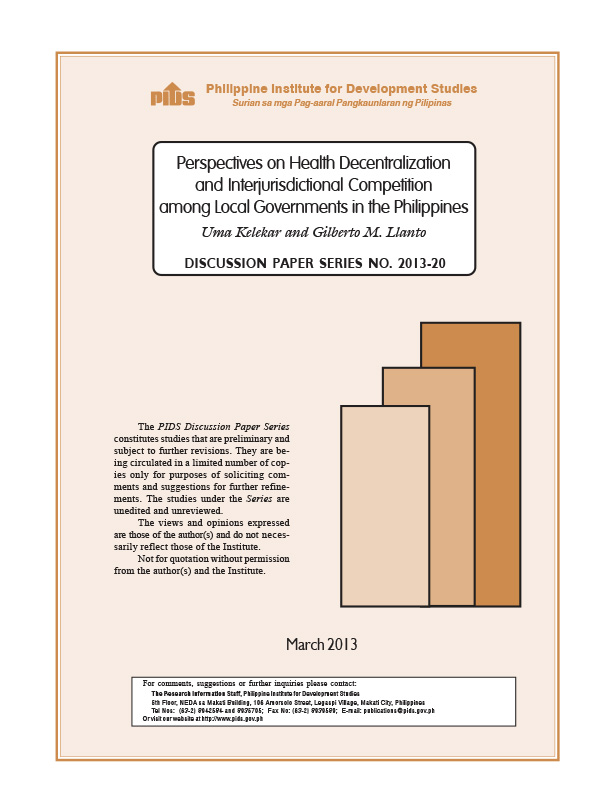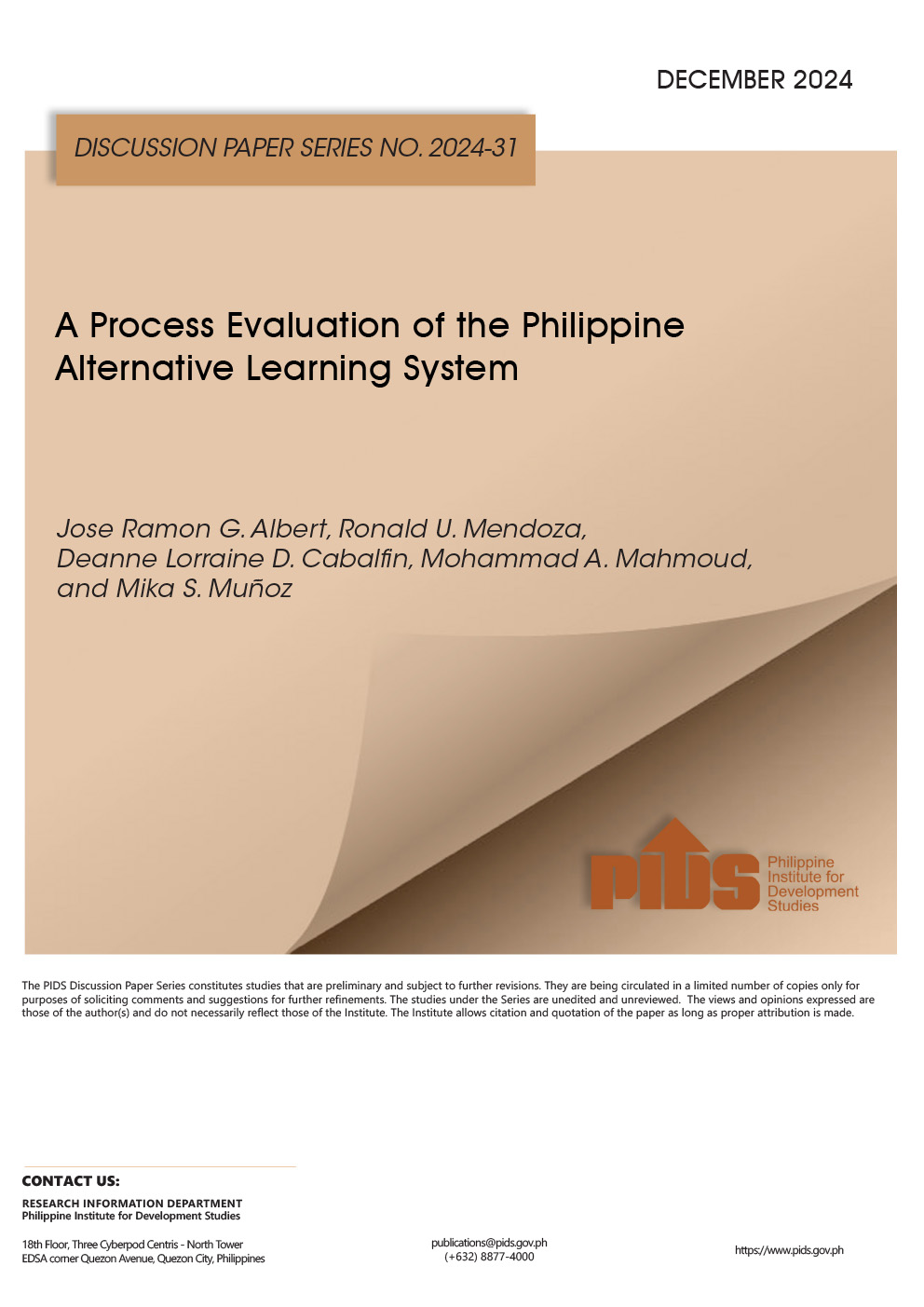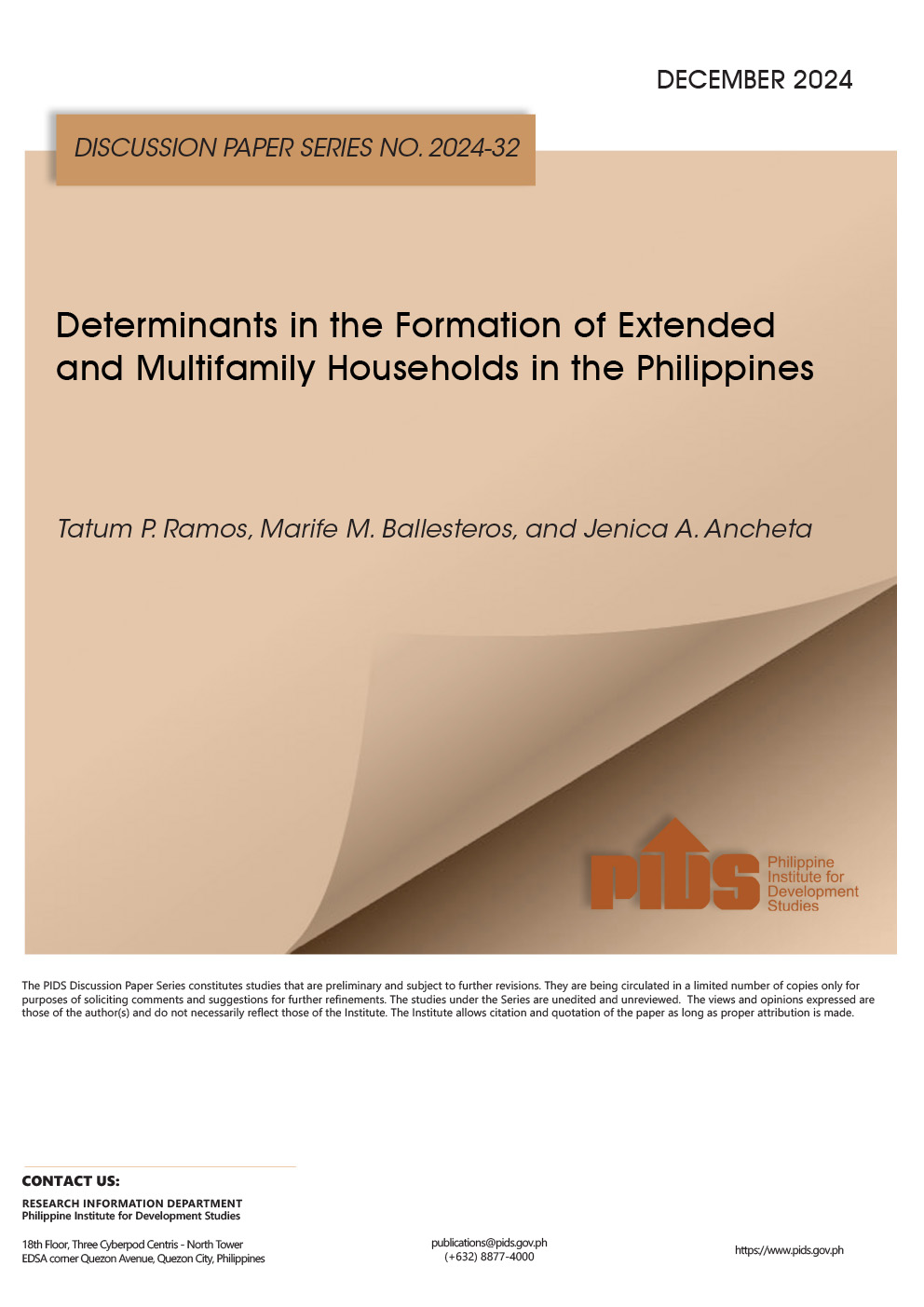It has only been in the recent years that developing countries are increasingly decentralizing the provision of health care to their local governments. This paper explores some key issues related to health decentralization in the Philippines identified in literature and in course of interviews with country officials working in the health care area. Issues of planning and budgeting of health plans, revenue and expenditure assignments in a decentralized health system are discussed. In addition, issues specific to the determinants of local government health spending are closely examined.
One of the key questions closely examined is whether there are any incentives for local governments to compete through spending on health in a decentralized system. The question of spatial competition is addressed through an empirical analysis that attempts to test the presence of horizontal and vertical fiscal interactions among local governments in the Philippines using local government health expenditures data. While there is a consistent positive interaction among municipalities in health spending, the interaction of municipalities with provinces is positive but weakly significant. The positive fiscal interaction among local governments is explained as a result of potential competition for health care inputs.













